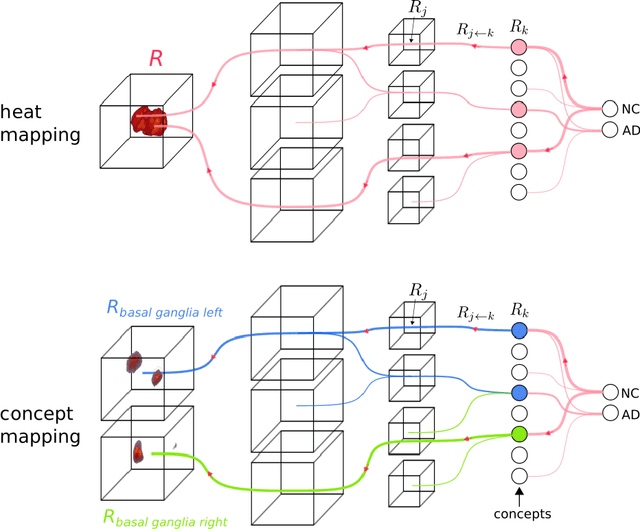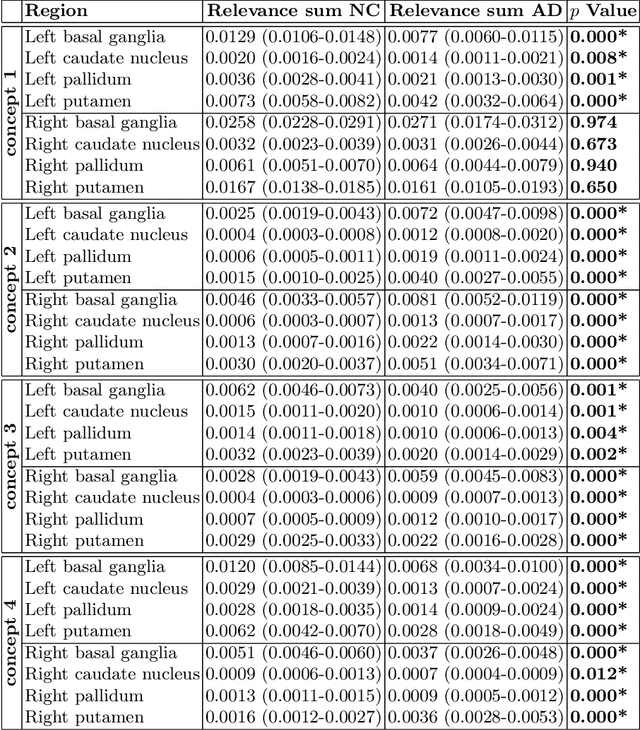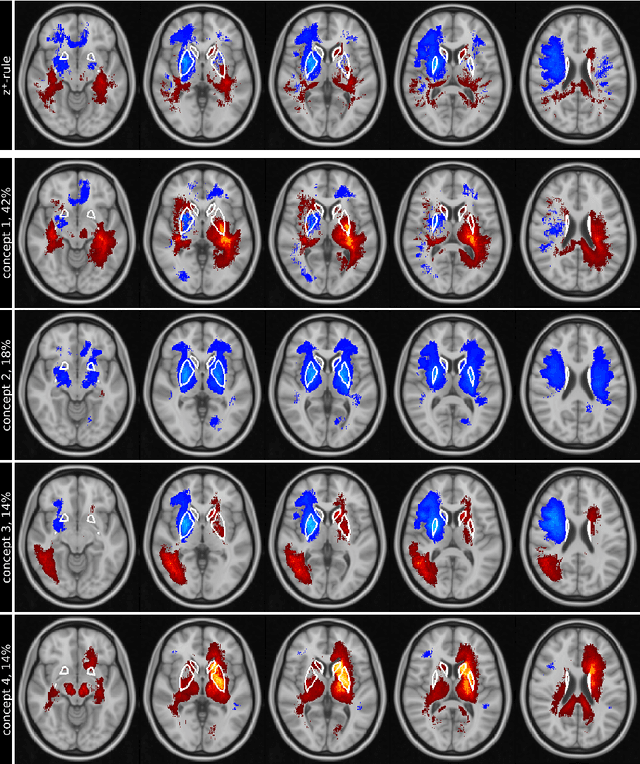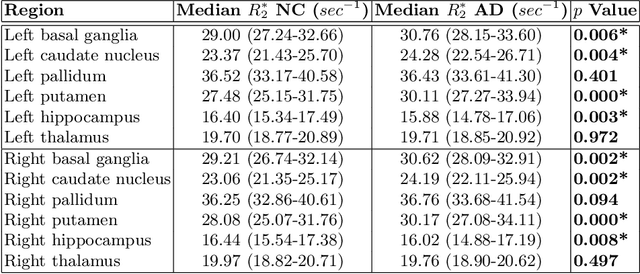Explainable concept mappings of MRI: Revealing the mechanisms underlying deep learning-based brain disease classification
Paper and Code
Apr 16, 2024



Motivation. While recent studies show high accuracy in the classification of Alzheimer's disease using deep neural networks, the underlying learned concepts have not been investigated. Goals. To systematically identify changes in brain regions through concepts learned by the deep neural network for model validation. Approach. Using quantitative R2* maps we separated Alzheimer's patients (n=117) from normal controls (n=219) by using a convolutional neural network and systematically investigated the learned concepts using Concept Relevance Propagation and compared these results to a conventional region of interest-based analysis. Results. In line with established histological findings and the region of interest-based analyses, highly relevant concepts were primarily found in and adjacent to the basal ganglia. Impact. The identification of concepts learned by deep neural networks for disease classification enables validation of the models and could potentially improve reliability.
 Add to Chrome
Add to Chrome Add to Firefox
Add to Firefox Add to Edge
Add to Edge